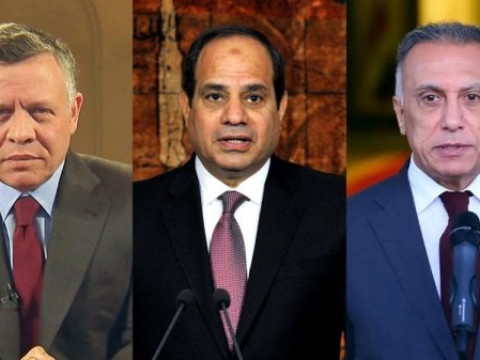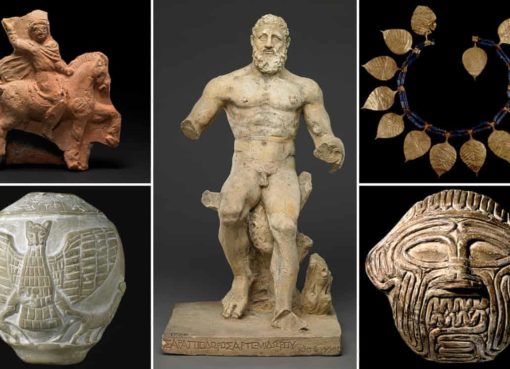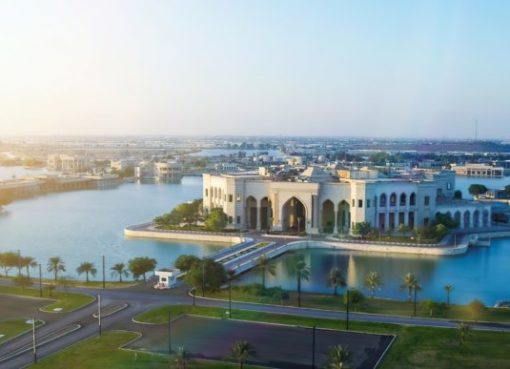Arab powerhouses trying to pull Iraq out of Iran’s sphere of influence might face a tremendous challenge
Over the last few months Egypt, Jordan, Saudi Arabia and the United Arab Emirates (UAE) have stepped up efforts to enhance cooperation with Iraq, which still relies heavily on neighbouring Iran in energy and other economic domains.
The two Sunni heavyweights, Saudi Arabia and the UAE – which had been reluctant for years to engage the Shia-led government in Baghdad – have announced plans to provide Iraq with more than $6 billion investments in unspecified economic projects.
Meanwhile, Egypt and Jordan are warming up to the idea of offering Iraq more ambitious integration plans, hoping to find strong footholds in the Iraqi market and reconstruction programme.
One problem with Arab countries turning to Iraq after years of icy relations following the fall of the Sunni-led regime of Saddam Hussein is that there is no intra-Arab strategy and, more worryingly, matchups within the Arab world.
While some Arab countries are wooing Iraq, others are doubtful that the incumbent Prime Minister Mustafa Al-Kadhimi, who faces resistance from pro-Iran political factions, can reclaim Iraq’s status in the Arab world.
So far, Saudi Arabia has agreed to establish a joint fund with Iraq, with an estimated capital of $3 billion, as a contribution from the oil-rich kingdom to promoting investment.
Saudi Arabia has also promised to implement wide-ranging projects in trade, transportation, agriculture and energy, including a power grid to supply Iraq with badly needed electricity.
For its part, the UAE will aid Iraq with investments worth $3 billion to “spur developmental and socio-economic growth”, including providing “logistical support for Iraq in order to develop its ports and improve its services”, according to official statements.
Nor can Egypt and Jordan turn a blind eye to Iraq’s economic potential, and they too are seeking to expand their business with Iraq through detailed frameworks to create a long-term partnership.
Egyptian exports to Iraq rose to $583.27 million last year, up from $360.31 million in 2019 with sales including vegetables, foodstuffs, textiles, pharmaceuticals and appliances.
Cairo is seeking an oil-for-reconstruction agreement with Baghdad under which Egyptian companies will be able to participate in building projects in Iraq in return for quantities of oil.
Cairo also hopes to implement 15 previous agreements varying between housing, construction, transportation and water resources. Iraq is already supplying Egypt with 12 million barrels of oil, used by the Egyptian General Petroleum Corporation (EGPC). Under a deal which is renewed every six months, Egypt receives the Basra Light crude with preferential treatment.
Iraq is a major trade partner with Jordan with the kingdom’s exports to Iraq amounting to some $404.6 million last year, up by seven per cent from 2019 but down of its $1 billion worth in 2015.
Iraq had exempted nearly 400 Jordanian commodities from customs duties but last month, head of the Amman Chambers of Industry, Fathi Al-Jaghbeer revealed that Iraq has now dropped the levies on all imports from Jordan, a move which will give Jordanian exporters the tariffs edge over Iraq’s other trade partners.
Iraq also sells about 10,000 barrels per day of crude oil to Jordan at a special price and has agreed to build a 1,700 km oil pipeline linking Basra to Aqaba on the Red Sea. The two countries have also agreed to set up an industrial zone on their joint border which would provide jobs for Jordanians in industrial projects. They also agreed to link their electricity grids, ordering technical studies to allow Jordan to export up to 300 megawatts of electricity to Iraq.
Through a proposed tripartite partnership, both Egypt and Jordan hope to translate their newly revamped relations with Iraq into concrete plans and institutions, probably through an economic grouping.
Meanwhile Lebanon, which is reeling beneath an economic meltdown that threatens instability, is also seeking ways to boost its business in Iraq. Last month Beirut said it had signed a preliminary agreement with Baghdad that would see Lebanon trade its medical expertise for Iraqi oil supplies.
Lebanese Energy Minister Raymond Ghajar said that under the initial accord Lebanon will receive 500,000 tonnes of Iraqi oil, a sixth of its annual needs, in exchange for medical and hospital services.
Under the proposed deal Lebanon would also provide cooperation in training and hospital administration, with Lebanese experts and specialist teams involved in managing new facilities in Iraq.
Qatar has also been moving to join the race with other Arab countries for closer ties with Iraq. Last month Qatari Foreign Minister Muhammad Bin Abdulrahman Al Thani went to Baghdad to explore ways to expand relations with top Iraqi leaders.
While such massive Arab inroads into Iraq’s economy through trade and investment are business oriented, their political implications cannot be ignored. Though Arab governments have adopted a discreet approach on the political goals and objectives behind their business initiatives, for many commentators their warming up to Iraq has been largely seen as a new beginning to disengage Iraq from Iran and bring it back into the Arab fold.
Since Saddam’s ouster in 2003 Iran has established itself as the key external power broker in Iraq using its longstanding ties with key Iraqi Shia politicians, parties and armed groups, and its soft power in the religious and economic domains.
Iran has also used its Shia proxies in Iraq to gain an alternative source of influence and the means to securing itself as a key regional power, giving it a geopolitical edge over its Arab neighbours.
Yet it is not clear whether the Arabs’ business foray into Iraq will realistically shield Iraq from the powerful Iranian influence or present new opportunities for the Arab powerhouses to extend their reach in Iraq on the basis of greater mutual opening up.
The Arab world has been grappling with the implications of a post-Saddam Iraq run by Shias, a prospect viewed with concern by some of the key Sunni Arab governments. Yet the Arabs’ cautious approach to Shia-dominated Iraq and their lack of initiatives have largely benefited Iran and helped the Islamic Republic to deepen its roots there.
Today, Iran is one of Iraq’s main trade partners and its annual exports to Iraq amounted to about $10 billion or some 25 per cent of Iraq’s imports. Iranian officials have said they want to increase that to $20 billion by gradually expanding their share in the Iraqi market.
But the list of actions that demonstrate Iran’s political standing and security influence in Iraq is long and far-reaching. Anti-government protests that shook most of the country in 2019 and 2020 exposed long-simmering resentment of Iran’s influence.
Many in Iraq, including Al-Kadhimi, however, remain convinced that their country’s best hope to establish balanced foreign relations may come in the form closer ties with their Arab neighbours.
Echoing a 2014 World Bank proposal, Al-Kadhimi has revealed that he will suggest “New Levant project” to a planned summit that will bring together leaders of Egypt, Jordan and Iraq in Baghdad.
Still, all these Arab initiatives in Iraq seem to be vague, poorly coordinated and sometimes driven by different or conflicting intentions and calculations. There will be always questions if they ever reflect a serious political will and if they can be translated into concrete actions.
While Al-Kadhimi’s plan remains remarkably opaque, Iran will do its best to torpedo these Arab projects in order to keep the Iraqi market a major destination for Iranian goods and also to keep Iraq itself under its control.
Source: ahramonline, Monday 12 Apr 2021








Comment here